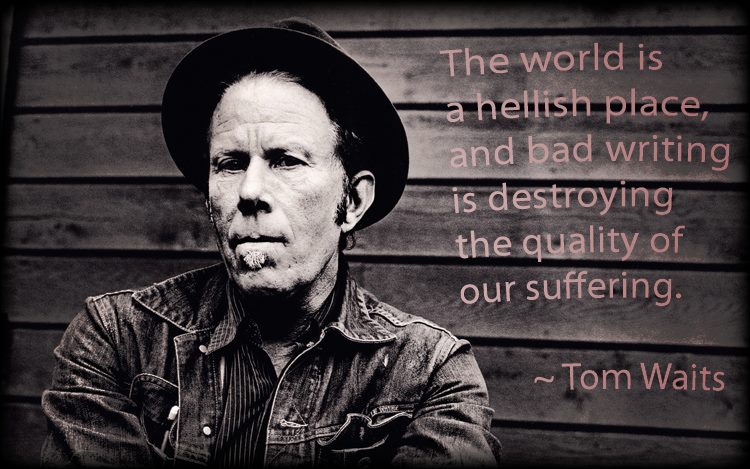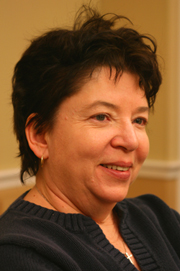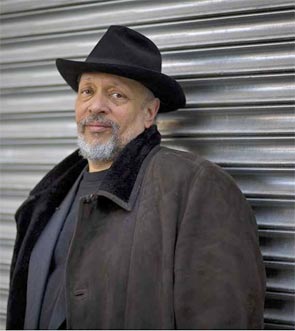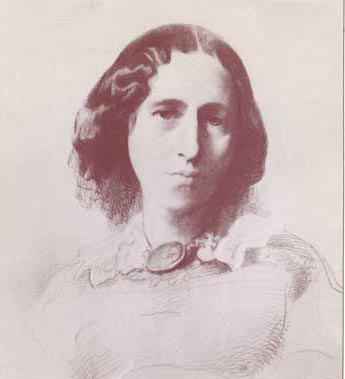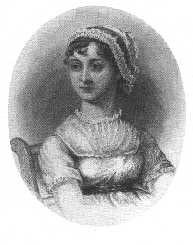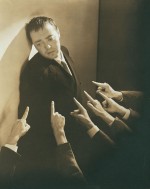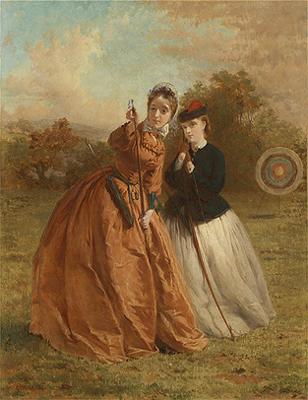Spring 2016
Novel II
Advanced Novel Writing Workshop
Updated 4-14-16
Current session
Can It Really Be that Class is Over?
I'll Really Miss This One...
MSW
Last word: Article on Indie Publishing from Author's Guild
Some things to look at online:
Sergio gives us the link to an article about Romance novel covers (and the men who model for them) with lots of insights into an active area of self-publishing.
NYU asks that ...students remember that the evaluation period has started and that they must submit their evaluations by 11:59 p.m. on the evening of the final class. They won't accept late evaluations. If you did not receive the email, go to the following URL to complete their evaluation:sps.nyu.edu/evaluate. Log in with your NetID/Password. This is the same information you use to login to NYUHome.
Writing summaries and synopses: Daniel José Older and Jenna Moreci (thanks David Martin)
Veronica Sicoe on using stereotypes -- More from Veronica Sicoe: Why she self-publishes .
Interview with Lauren Groff (thanks to Cliff)Does reading literary fiction make you better at reading social clues? This study says yes.
Article on overuse of certain words
Reading List from Our Class Spring 2016
Are you thinking of writing for young adults? How old do you think a "young adult" is? Here are a couple of interesting posts about "New Adult" novels--thanks, David Martin:
http://laurajmoss.com/laurablog/?p=2202
https://aaomer.wordpress.com/2012/07/26/new-adult-the-answer-to-the-void-between-ya-and-adult/
Current session
Meredith Sue Willis Home
Syllabus
Individual Presentation Dates for Critiquing
Some Things To Read
Some Living Novelists Worth Reading
Donna Leon Denise Giardina Sarah Waters Walter Moseley
Authors of the so-called "Great Tradition" of English literature
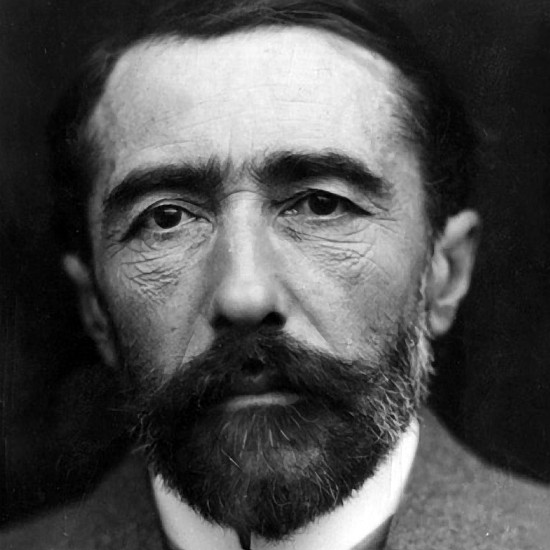
George Eliot Jane Austen Henry James Joseph Conrad
NYU WRIT1-CE9357
Advanced Novel Writing (Spring 2016)
New York University Spring 2016
February 10 - April 13
School of Professional Studies
Wednesday, 6:30PM - 8:50PM
Woolworth Building, 15 Barclay Street, Room 420
Instructor: Meredith Sue Willis
E-mail: MeredithSueWillis@gmail.com
Instructor's homepage: Meredith Sue Willis
Novel II - Advanced Novel Writing Workshop
Syllabus--Schedule of ClassesThis class is for writers who are well-started on a novel and need further discussion and stimulation to restart or continue. We begin with a look at novel structure in general and then examine up to 50 pages of manuscript text from each student. For those with longer or revised manuscripts, this course may be repeated.
This syllabus will be updated regularly online, so please check this website at least once a week at http://www.meredithsuewillis.com/nyunoveltwo.html.
Please be prepared to discuss the work of classmates when they present. Assignments are optional and go only to MSW. Discuss with her if you prefer to turn in ten pages five times or two long sections of your novel-- think about how you would like your feedback. Anything you turn in to MSW, however, including the presentation pieces, counts towards the total of 50 pages to be reviewed in the course of the semester.
All writing and presentations should be from the novel you're working on.
This course may be used toward the departmental certificate in Creative Writing.See NYU's SCPS Certificate in Creative Writing for more information.
In order to earn the credit, you must request credit from the teacher. You may choose a pass/fail option, or you may request a letter grade. No letter grade will be given below a B. To earn a B, you must complete 50 pages to the professor's satisfaction plus present work for critiquing by the class at least once. To earn an A, you must complete the 50 pages, present work for critiquing by the class at least twice and and show evidence of having done any outside reading plus participate fully in class discussions.
It should be noted that all NYU policies on academic integrity, i.e., plagiarism, are fully in effect in this course.
Disclaimer: Syllabus is subject to change due to current events, guest speaker schedule changes, and/or level and interests of students.This class is for writers who are well-started on a novel and need further discussion and stimulation to restart or continue.
A Few Recent Articles That Might Interest You
A sobering--and fascinating--summary of publishing in 2016: http://www.themillions.com/2016/…/the-open-refrigerator.html
The Editor's Blog on choices for writing "Inner dialogue."
Don't wait to submit if a magazine asks you to try again (aimed at women but true for everyone).
Troy E. Hill on Making a Writers' Group Work
On drafting a novel and then having to draft again: Ed Davis's blog post.
The case for keeping your novel short.
A wonderful old piece on whether writing can be taught by Kurt Vonnegut.
More things to read
1. 2-10-16
Welcome to Novel II!
We'll try to move our fiction forward through sharing, critiques, brief exercises, and conversations.
Assignment: Twelve copies of a one page summary or outline of the novel or other project you'll be working on, plus first three sample pages to give everyone a taste of your prose.
In Class Discussion: Structure of the course and structure of the novel. Common vocabulary--Discourse, pacing, point of view; process versus product, when to dramatize, when to elide. Scene and summary.
Scene as the building block of novels. Essential importance of Point of View in all fiction.
Structure & Plot
"Deep revision" (to overturn, get out of ruts, shuffling, moving)
Line-editing
How do we evaluate fiction? What do you read? What kind of feedback do you find most useful? What do you need from this course?
SCHEDULE PRESENTATIONS FOR CRITIQUE.
2. 2-17 Assignment: A scene with more than one thing happening. Remember: it's your choice to do the assignments or not, and feel free to substitute, but the total number of pages you may give me for response is up to 50 (that includes pieces presented to the whole group.)
In Class discussion: More point of view, scene, and tense. Take a look online at http://www.meredithsuewillis.com/materials.html#povsamples ,http://meredithsuewillis.com/materials.html#scene , and http://www.meredithsuewillis.com/materials.html#presenttense.
If you haven't done it yet, please provide each member of the class with a 1 page overview and a 2-3 page writing sample.
Read: A Wall Street Journal article about Marlen Bodden, a former student in Novel II who first self-published-- and just had her book picked up by commercial presses!
INDIVIDUAL PRESENTATIONS BEGIN. (See Schedule below).
3. 2-24 Assignment:: A scene with a lot of people in it-- a group scene. This might be a party; a bar; a church dinner; a class; a museum or stadium or other public space; or other. Use the people as part of the setting: colorful clothes? a mass of unfamiliar faces? Think about the point of view of this scene: is it being told by someone in the midst of it or from a great distance? Is it first seen in full, as a long shot? Or is it first seen up close, from one character's sense of being lost in the crowd?
Read: Read the notes on Grounding and the logistics of Crowd Control. Also, if you haven't read them yet, read the materials for sessions above, particularly the Notes on Scene.
Also, take a look at conventional editorial marks here.
In Class discussion: Logistics and physical action; grounding, point of view in group scenes.
PRESENTATIONS (Schedule below)
4. 3-2 Assignment: Write a scene focused on dialogue.
Read: Take a look at the material on dialogue at: Dialogue Tags ; Types of Discourse; and " Dialogue: The Spine of Fiction." (article by MSW about dialogue online). To learn techniques for writing inner dialogue, see The Editor's Blog on choices for writing "Inner dialogue." For a more concise version of this information, see Grammar Girl.
Optional: Take a look at this daunting but important article about publishing by Gerald Howard: http://www.themillions.com/2016/…/the-open-refrigerator.html. It includes this sentence: "There are these days about as many uncredentialed walk-ons in our literary fiction as there are walk-ons in major league baseball."
In Class discussion: Books that we find instructive for writing novels. Structuring dialogue and scene. Showing and Telling, Narrating and Dramatizing.
PRESENTATIONS (Schedule below).
5. 3-9 Assignment: Write a scene focused on a minor character. (This is especially useful for novel writers. If you are writing stories, you may do this, or you may want simply to focus on monologue.) Can you include a monologue for the
character? Try having the monologue be spoken aloud or expressed in some other way that fits into your project: a letter? an e-mail message? an acceptance speech at an awards ceremony?
Read: Excerpt from Trespassers. and brief notes on minor characters if you haven't read them yet. Also see these sample descriptions of minor characters.
In Class discussion: Finish up dialogue
PRESENTATIONS (Schedule below).
6. 3-16 Assignment: Write a scene that uses a technique from film (establishing shot, jump cut, etc.). Take a look at useful film terms and Closeup-longshot.In Class discussion: Logistics. Using film to learn to write better action.
Read: Check out these notes on using the present tense in narrative.
Also, for more on writing physical action , take a look at this passage from one of my novels in which a character is at a political demonstration.PRESENTATIONS (Schedule below).
7. 3-23 Assignment: Write a scene that uses a technique that is especially strong in fiction (memory, word play, flashback, summary, interior monologue, etc.) . Read flashback note here.
See Chapter Six of MSW's Ten Strategies to Write Your Novel on Structure
In Class discussion: Structure of the novel.
PRESENTATIONS (Schedule below).
8. 3-30 Assignment: A scene that uses weather as part of its materials. Please read the online discussion of weather here.
In Class discussion: Marketing your work in the age of e-books and self-publishing: a pooling of resources. Take a look at notes on various kinds of publishing at Publishing Types and Print on Demand. Also see blog post by Veronica Sicoe on why she self-publishes .
PRESENTATIONS (Schedule below).
9. 4- 6 Assignment: Choose one: :A physical action or a revision based on comments in this class. Include notes from MSW and class members.
In Class discussion:Revising novels. Take a look at MSW's article from The Writer, "Seven Layers to Revise Your Novel."
PRESENTATIONS (Schedule below).
No material may be turned in for feedback after this date.
10. 4- 13. INDIVIDUAL PRESENTATIONS and Farewells.
(Schedule below).
All assignments should be PART OF YOUR NOVEL. You may substitute any short section for the assignments, keeping in mind that the total submitted to MSW may not be more than 50 pages..
List of Presenters and date
Novels recommended for reading/study by students
Bibliography of Books about writing
Notes on Point of View
Proof reader's marks
Some quotations about writing
More Resources for Writers
Some Things to Read:
"Robin Hobb" says of her process with her epic fantasy novels, in an interview:
"I have the general premise for the full trilogy in my brain when I start, but it's not usually formally committed to paper. There will be notes and cool ideas and sometimes even bits of dialogue. Often those ideas float around in my brain for years. "Then when the time comes to start writing, I do a quick chapter breakdown for the first book. I don't regard it as binding; it's more like a map of how the story might go to reach the desired endpoint. But as all travelers know, there are many routes to any destination, so if I see an interesting detour, I'll probably follow it. I may come to a dead end and have to backtrack, but there is also the chance that I'll find some really fascinating unexplored territory or meet a character I didn't expect to be traveling with.... "The bargain I make with myself is that if I suddenly see a more interesting direction for the story to take, I'll follow it. I've regretted that more than once as I ran into brick walls, but it's what keeps my world and my characters alive and interesting. If I'm always dictating to my characters, then I'm never surprised. And surprises keep the story interesting. It can also lead to moments when you realize you have to discard the last fifty pages as the story line has trickled to a halt. That's a surprise, too, but not the kind I like."
Tips for Writers
Articles for Writers
Chuck Sambuchino on how to get an agent without a query letter.
Dan Menaker on old time editing and the publishing that (used to?) make it possible--and my blog post in response.
Publishing by Crowd Funding??
Writers Digest piece on Using Real Life in your fiction.
A TED talk on world building in fiction.
More Readings
Information on Marketing: Go to the resources page, and in particular to the links in the left hand column for: Agents, Articles of interest to writers, online places to submit fiction, Book Doctors & Private Editors, Book Publishers (small), Copyright , Literary Agents, Markets for Literary Fiction, Printers: Recommended book producers (not publishers), Publicizing Your Book , and more online resources for writers.
Virginia Woolf from "Killing the Angel"
Elmore Leonard's Ten Rules for writers. You don't have to agree to be amused.
Discussion of Memoir and Fiction by Keith Maillard and Carole Rosenthal in Books For Readers Issue #80.
Phillip Roth and RIchard Wright on writing.
Article on publishing in Salon: "20 percent of a [book's] budget... pays for paper, printing and binding..."
Article on how authors get paid
"The Business of Books, by André Schiffrin," reviewed by Meredith Sue Willis (the status of publishing-- old, but has historical interest.)
Here is a funny poem by Billy Collins about workshopping poetry.
Notes on various kinds of publishing at Publishing Types and Print on Demand.
Query letters & more: Sample Query Letters from MSW ; The 5 Stages of
Work by Meredith Sue Willis Available Online:
Feral Grandmothers: Little Red's at Persimmon Tree.
"My Most Embarrassing" short short at Two Hawks Quarterly
"Tara White" as published in Bloodroot Literary Magazine 2009
"Tales of the Abstract Expressionists" as published at Tatlin's Tower;
"Recessional" as published at Coelecanth Magazine
"Scheherezade and Dunzyad" in The Pedestal Magazine
Some of MSW's Nonfiction available online:
"The Business of Books, by André Schiffrin," reviewed by Meredith Sue Willis (the status of publishing)
"On Cutting," (article by MSW about editing and revising)
" Dialogue: The Spine of Fiction," (article by MSW about dialogue)
The best novelists avoid their deficiencies :
Michael Gorra in his Portrait of a Novel: Henry James and the Making of an American Masterpiece (New York: Liverigtht, 2012), p. 160, quotes Graham Greene's essay "The Dark Backward': "A novelist's individual technique is more than anything else a means of evading the personally impossible, of disguising a deficiency....Lesser writers never realize their limitations. Many great ones stumble over something a hack might do with ease."
From a wonderful old piece on whether writing can be taught by Kurt Vonnegut:
"When the subject of creative writing courses is raised in company as sophisticated as readers of this paper, say, two virtually automatic responses can be expected. First a withering 'Can you really teach anyone how to write?' An editor of this very paper asked me that only two days ago.
"And then someone is almost certain to repeat a legend from the old days, when male American writers acted like tough guys, like Humphrey Bogart, to prove that they, although they were sensitive and liked beauty, were far from being homosexual. The Legend: A tough guy, I forget which one, is asked to speak to a creative writing class. He says: 'What in hell are you doing here? Go home and glue your butts to a chair, and write and write until your heads fall off!' Or words to that effect.
"My reply: 'Listen, there were creative writing teachers long before there were creative writing courses, and they were called and continue to be called editors.'"
Killing the Angel in the House
It was she who used to come between me and my paper when I was writing reviews. It was she who bothered me and wasted my time and so tormented me that at last I killed her. You who come of a younger and happier generation may not have heard of her– you may not know what I mean by the Angel in the House. I will describe her as shortly as I can. She was intensely sympathetic. She was immensely charming. She was utterly unselfish. She excelled in the difficult arts of family life. She sacrificed herself daily. If there was chicken, she took the leg; if there was a draught she sat in it–in short she was so constituted that she never had a mind or wish of her own, but preferred to sympathize always with the minds or wishes of others. Above all– I need not say it– she was preened when I came to write I encountered her with the very first words. The shadow of her wings fell on my page; I heard the rustling of her skirts in the room. Directly, that is to say, I took my pen in hand to review that novel by a famous man, she slipped behind me and whispered: "my dear, you are a young woman. You are writing about a book that has been written by a man. Be sympathetic; be tender; flatter; deceive; use all the arts and wiles of our sex. Never let anybody guess that you have a mind of your own. Above all, be pure." And she made as if to guide my pen. I now record the one act for which I take some credit to myself, though the credit right belongs to some excellent ancestors of mine who left me a certain sum of money–shall we say five hundred pounds a year?– so that it was not necessary for me to depend solely on charm for my living. I turned upon her and caught her by the throat. I did my best to kill her. My excuse, if I were to be had up in a court of law, would be that I acted in self-defence. Had I not killed her she would have killed me. She would have plucked the heart out of my writing.
-- Virginia Woolf, From "Professions for Women," in The Death of the Moth and Other Essays, (New York: Haircord Brace Juvenilia, 1970) 236-239.
Don't forget: if you are reading one week,
bring copies for the class the week before.
2. 2-17
Nate Stein
Luz Betancourt3. 2-24
Michael Feigin
Sergio Remon
David J. Martin4. 3-2
Jeanine Royce
Sara Weekly
5. 3-9
Cliff Jacobs
Gregory Smith
Luz Betancourt
Michael Feigin
6. 3-16Kate Freeman
Nate Stein
Sergio Remon
Cliff Jacobs7. 3-23
Gregory Smith
David Martin
Michael Feigin
Sara Weekly
8. 3-30
Sergio Remon Alvarez
Nate Stein
Kate Freeman
Sara Weekly
Michael Feigin
9. 4- 6
Jeanine Royce
Cliff Jacobs
Luz Betancourt
David Martin
Nate Stein10. 4- 13.
Sara Weekly
Kate Freeman
Sara Weekly
Gregory Smith
Jeanine Royce
Sergio SHORT SELECTION
David Martin SHORT SELECTION
Authors and Works recommended Spring 2016
Cortazar, Julio Hopscotch
Ferrante, Elena (Neapolitan Novels)
Federle, Tim Better Nate Than Never
Gallant, Mavis
Gass, William In the Heart of the Heart of the Country
Goldman, Francisco Ordinary Seaman
Goldstein, Rebecca 36 Arguments for the Existence of God: A Work of Fiction
Hawkins, Paula Girl on the Train
Hemingway
Irving, John A Prayer for Owen Meany
Karr, Mary Liar's Club: A Memoir
King, Stephen 11-22-63
Koontz, Dean
Larsson, Stieg The Girl with the Dragon Tattoo
Leonard, Elmore The Switch
Lively, Penelope Moon Tiger
Marias, Javier Heart so White
Marquez, Gabriel Garcia
Murakami, Haruki Wind up Bird Chronicle
Patterson, James Along Came a Spider
Perlman, Eliot The Street Sweeper
Salinger, J.D. Nine Stories
Stefansson, Jon Kalman Heaven and Hell
Toibin, Colm Mothers and Sons
Wright, Bil Putting Makeup on the Fat BoyDramas: Shakespeare; Wilde, Oscar The Importance of Being Earnest
Novels Recommended by Other Classes
(For books about writing, see http://www.meredithsuewillis.com/resources.html#bibliography)
Subscribe to Meredith Sue Willis's Free Newsletter
for Readers and Writers:
Send mail
• What's On This Site • Information about MSW • Resources for Writers • Tips for Writers
• Samples of MSW's Writing • Articles for Writers • For Teens • News About MSW • For Kids
• For Teachers • Home • MSW's Books • Newsletter • Free Writing Exercises • Online Writing Classes
Home
